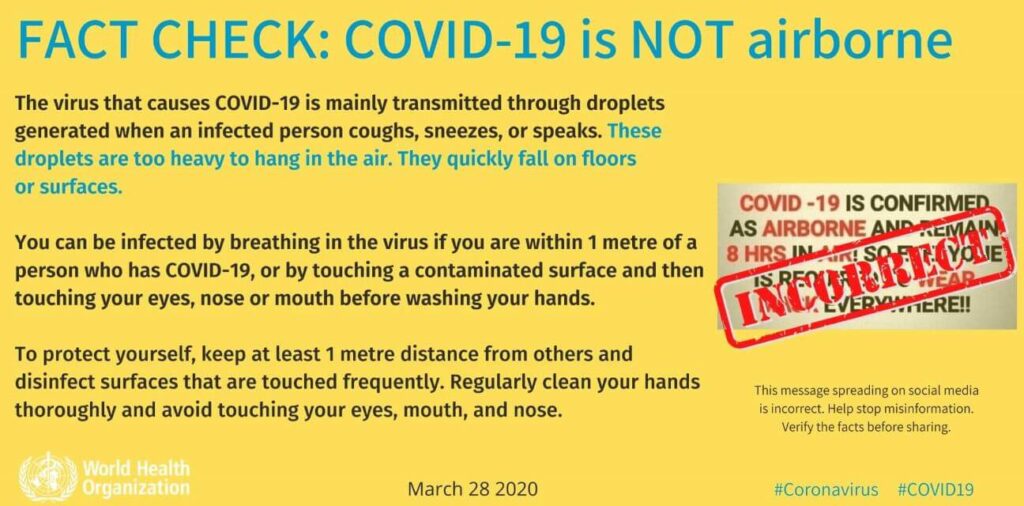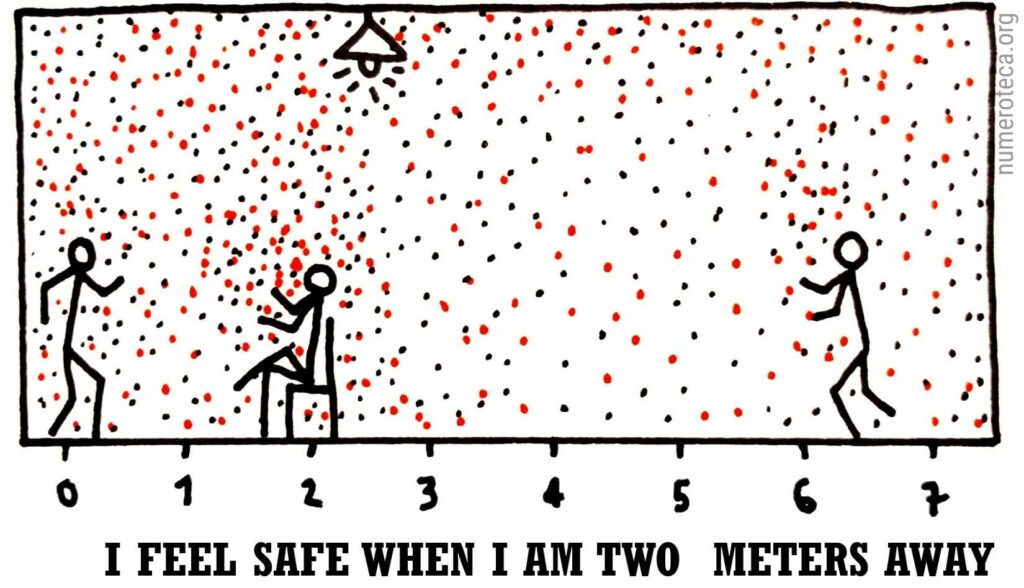A year ago, the World Health Organization (WHO) got it badly wrong on Covid-19. On 28 March, WHO published a ‘fact check’ on Twitter: ‘Covid-19 is NOT airborne.’ It would be nice to be able to say the rest is history, but the consequences of this mistake linger with us today.

There are two huge issues with this announcement. For one, it’s counterintuitive as far as the common meaning of ‘airborne’ goes. To say that a virus is ‘not airborne,’ but is transmitted (through the air?) when an infected person coughs or sneezes is confused and misleading. So it is a woeful way to carry out a public information campaign.
WHO have still never reneged on this. They argue that the evidence at the time was that only ‘heavier droplets’ could transmit the virus, and these wouldn’t hover in the air. Only in January 2021 did WHO recognise aerosol transmission as a possibility.
Yet even in March 2020, we had evidence of superspreading clusters linked to people spending long periods of time together indoors. WHO went in much too hard on a question that was, at best, still unclear.
So what are the consequences? While SARS-CoV-2-contaminated aerosols fill up unventilated spaces, we continue to focus on physical distancing and physical barriers. It’s common to see retail or office workers with their mask off, only to put it back on when actually having a conversation with someone face-to-face.

There is also far too much focus on disinfecting surfaces. As Nature said last month, “The World Health Organization and national public health agencies need to clarify their advice.” Public transport agencies pay extra cleaners to wipe surfaces down, when what they really need to address is the air, like South Korean quarantine, where new arrivals are put in negative pressure rooms.
Needless to say, WHO getting the science wrong is precisely what is not supposed to happen. The raison d’être of an international institution is to get it right. Getting this wrong literally led to thousands of lives being lost. It also contributed to undermining the legitimacy of an institution that should be able to fulfil an essential role in global health equity.
Cartoons courtesy of @numeroteca via Twitter.
Follow Christian on Twitter for more news updates.